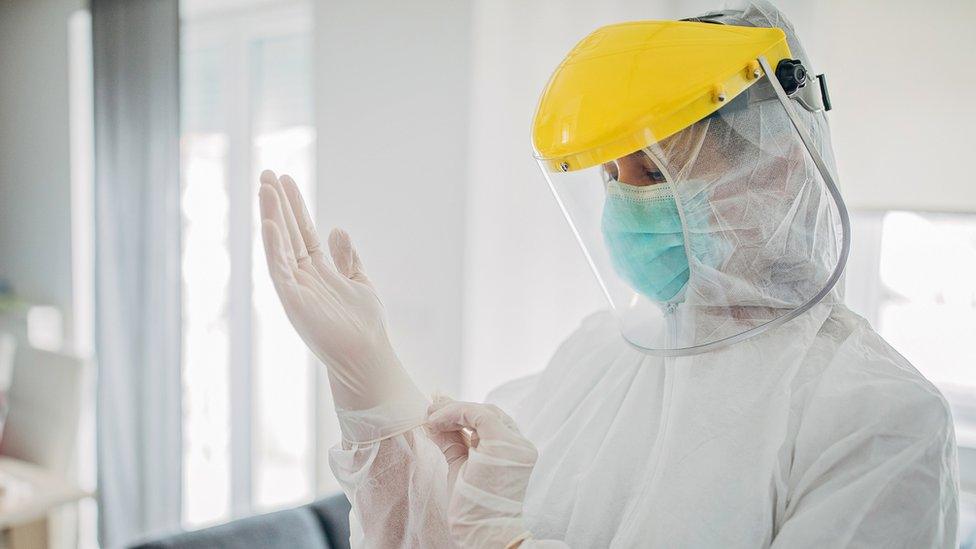Coronavirus: Year-long waits for hospital care in England worst since 2008
- Published
- comments
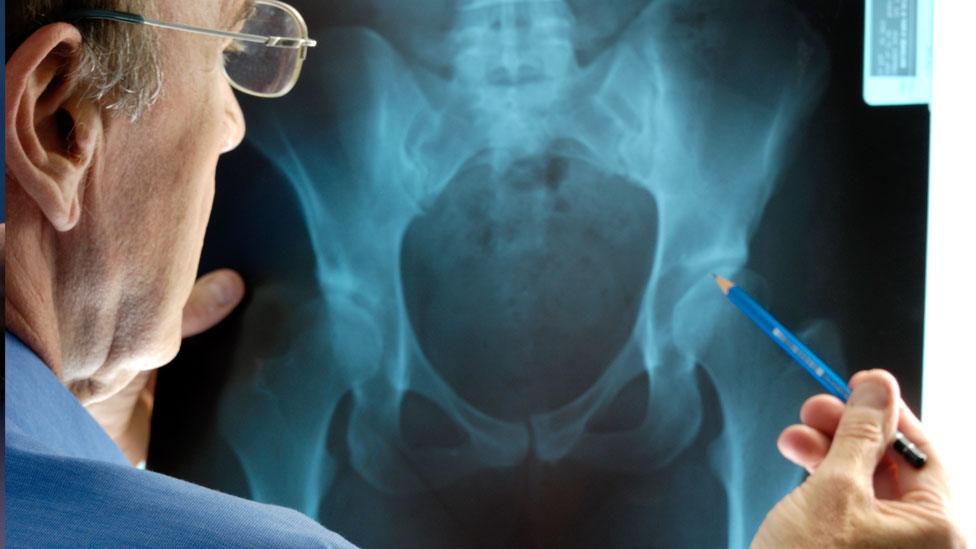
The number of people waiting over a year for hospital treatment in England has hit its highest levels since 2008.
Patients are meant to be seen within 18 weeks - but nearly 140,000 of the 4.35 million on the waiting list at the end of September had waited over a year.
The number waiting 12 months or more has increased sharply this year - the figure in February was just 1,600.
Surgeons said it was "tragic" patients were being left in pain while they waited for treatment.
And others warned the situation could become even worse during winter with the NHS seeing rising numbers of Covid patients.
In recent weeks, major hospitals in Bradford, Leeds, Nottingham, Birmingham and Liverpool, which have seen high rates of infection, have announced the mass cancellation of non-urgent work.
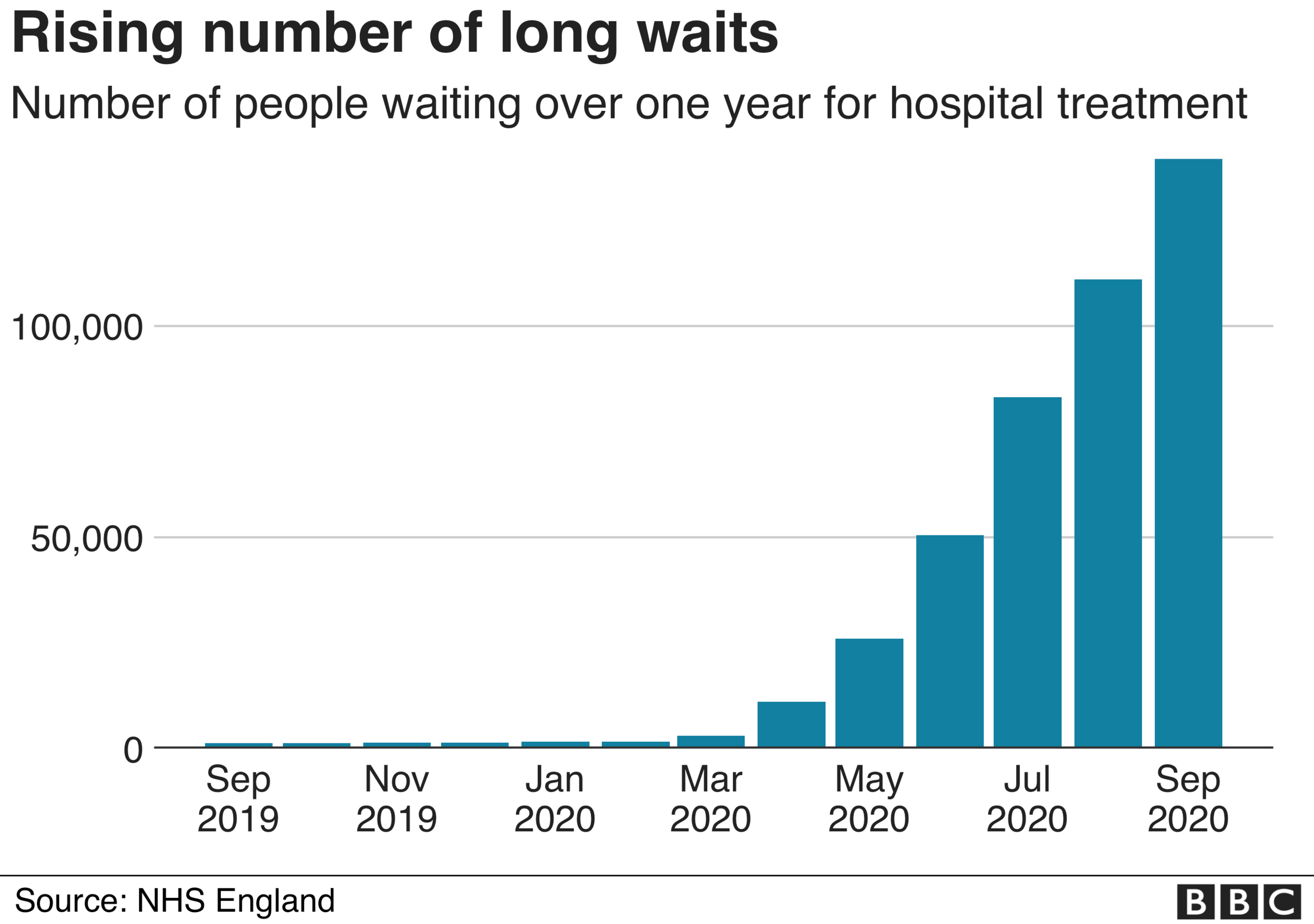

'I'm in pain every single day'
Donna Doyle, 52, was referred for surgery at the end of 2019.
She has rheumatoid arthritis and osteoarthritis and needed reconstructive surgery on the front half of her right foot.
But her pre-op appointment was cancelled in the spring because of pandemic. And now she has been told she will have to wait until February at the earliest.
"The pain isn't something that affects me every now and then, it's a problem every single day," she says.
"Imagine two pebbles grinding against the bone in your feet. It's constant.
"It causes a lot of problems in my life, physically and mentally. I psyched myself up for having the surgery, so the day I was told nothing would be happening, I was so upset.
"I work from home at moment. And some days, my husband comes home and I'm crying, feeling really down.
"I'm fed up with seeing Matt Hancock say "the NHS is open for business" because it's not true. I'm being overlooked."
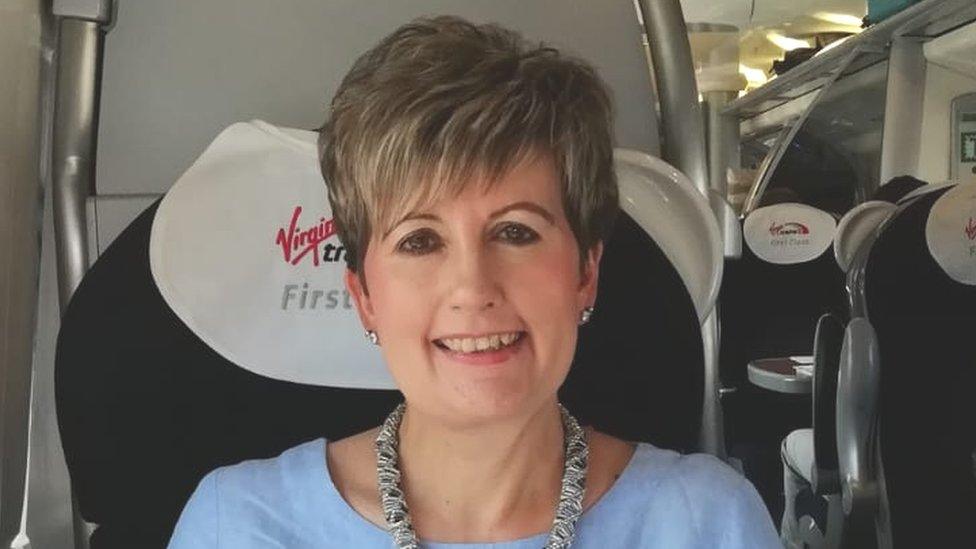

Prof John Appleby, director of research at health think tank the Nuffield Trust, said the situation was a "real concern".
Hospitals were facing a real battle to keep non-Covid services going, he said, pointing out the number of Covid patients in hospital had risen from just over 2,000 to more than 10,000 since the end of September.
"It is clear that over the summer months, NHS staff have put in tremendous amounts of work to boost activity across the board," he said.
"However, the service has fallen short of the tall order of recovering all non-Covid activity between the two waves of this pandemic."
Royal College of Surgeons of England president Prof Neil Mortensen said these patients had paid a "heavy price".
"It is tragic to see so many lives put on hold,2 he said.
"Each statistic represents someone waiting patiently, potentially in pain, for the treatment they need to get on with living an independent life.
"Older people and poorer people are particularly hard hit by these delays."

LOOK-UP TOOL: How many cases in your area?
YOUR QUESTIONS: We answer your queries
THE R NUMBER: What it means and why it matters
TREATMENT: How close are we to helping people?
VACCINE: How close are we to finding one?

Tracey Loftis, of the charity Versus Arthritis, said the situation was "appalling".
"We're currently seeing some hospitals entirely pausing elective surgery because of the pressures of the second phase of the pandemic," she said.
"The consequences of these further delays will reverberate for years to come."
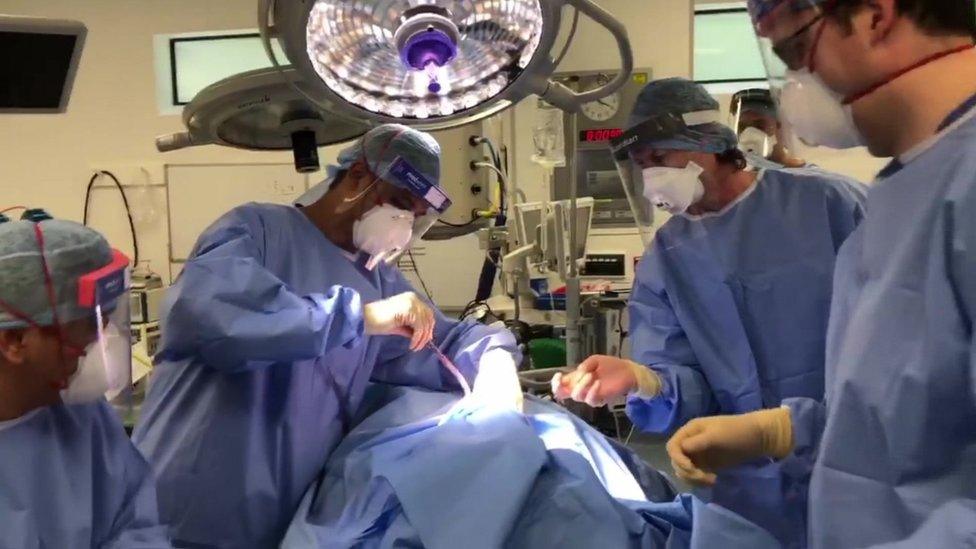
Chris Hopson, of NHS Providers, which represents hospitals, said the NHS was doing its best but was facing a really challenging winter.
"We are keenly aware of the inconvenience, anxiety and distress for patients caused by any delays for diagnostic tests, treatment or consultations," he added.
Alongside routine care, significant numbers have missed out on treatment for cancer.
The numbers receiving urgent check-ups have dropped by a quarter during the pandemic, with 300,000 fewer people seeing a cancer specialist from April to September than during the same period last year.
The numbers starting cancer treatment are also down by a fifth.

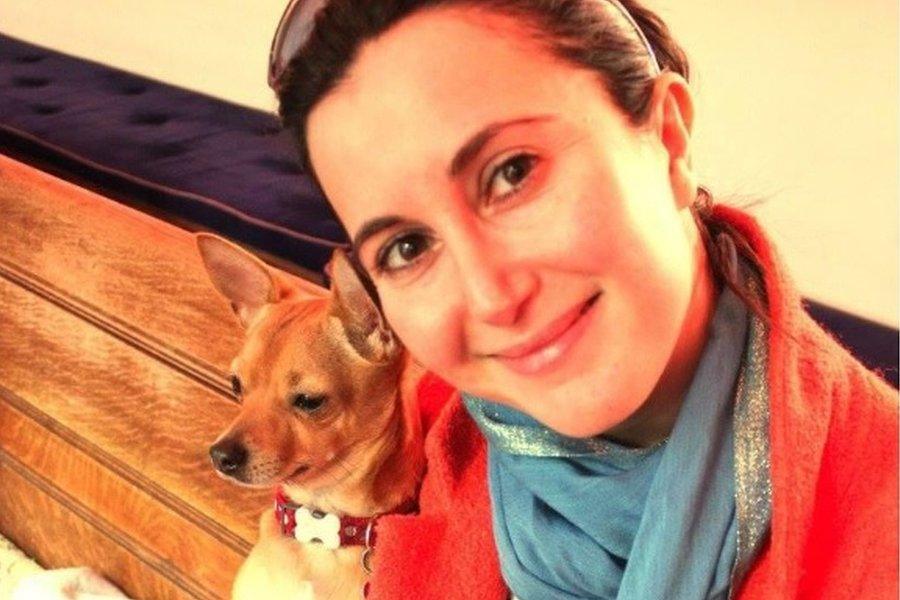
Anoushka Kurkjian
'My cancer has spread'
Mother-of-three Anoushka Kurkjian, 41, found a cyst on her breast in June.
She sought medical advice and was told it was benign but remained concerned because she was in pain.
As a last resort - three months later - she went to her local accident-and-emergency unit and was diagnosed with breast cancer.
She had been afraid to go because of worries over catching the coronavirus.
The cancer has now spread to her lymph nodes.
"If it had been a year ago, I would have gone in earlier," Anoushka says.
"I am now undergoing chemotherapy and have lost my hair.
"I feel very angry that I was not diagnosed earlier.
"I wish I could say to women, 'Seek treatment.
"'Don't be deterred.'
"Yes, Covid is a factor.
"But there's a lot more going on out there."

But NHS bosses said cancer services had returned to pre-pandemic levels of activity by the end of September.
An NHS England spokeswoman said: "The NHS message to the public has always been clear - do not delay, help us to help you by coming forward for care."

Have you had an operation cancelled or delayed recently? Share your experiences by emailing haveyoursay@bbc.co.uk, external.
Please include a contact number if you are willing to speak to a BBC journalist. You can also get in touch in the following ways:
WhatsApp: +44 7756 165803
Tweet: @BBC_HaveYourSay, external
Please read our terms & conditions and privacy policy
If you are reading this page and can't see the form, you will need to visit the mobile version of the BBC website to submit your question or comment or you can email us at HaveYourSay@bbc.co.uk, external. Please include your name, age and location with any submission.
- Published9 June 2020
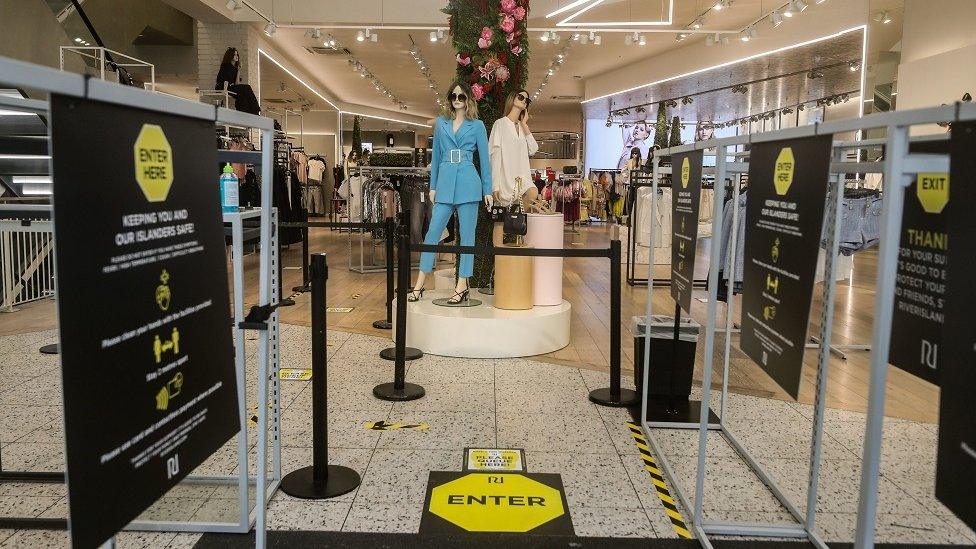
- Published9 June 2020
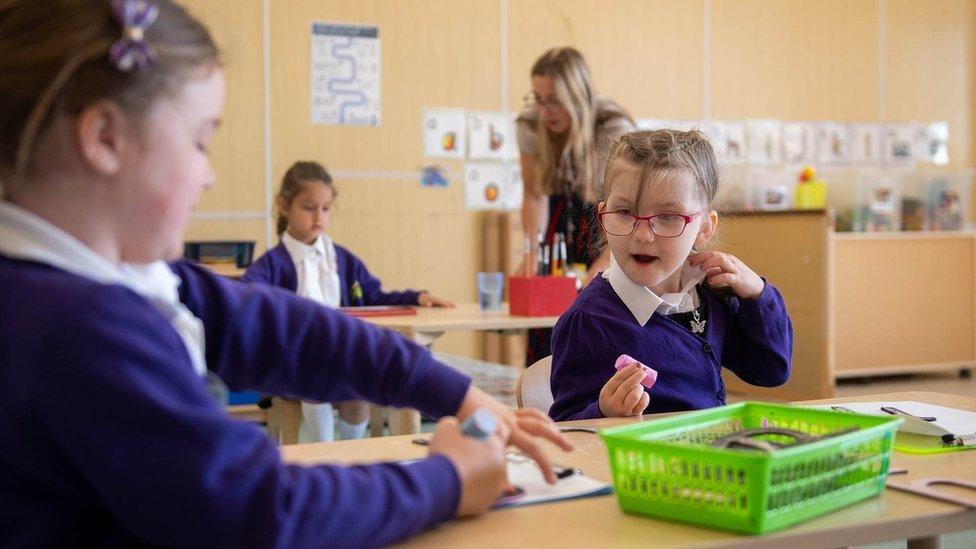
- Published9 June 2020

- Published15 May 2020
